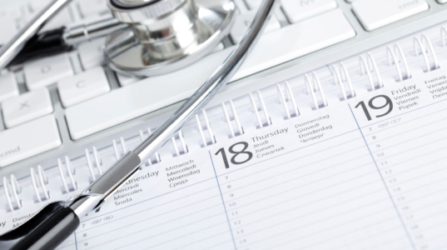Regular well checks can help you get and stay healthy. Checkups, or preventive exams, give you and your doctor a snapshot of your health. They also give you a chance to talk to your doctor about any problems or questions you have.
What to Expect:
Most checkups start with a talk about your health history and any problems. After that, most doctors will talk to you about things like:
- Medicines you take
- How you eat — and how you could eat better
- How active you are — and whether you should be more active
- Stress in your life, or signs of depression
- Drinking, smoking and drug use
- Safety, like wearing your seat belt and using sunscreen
- Your sexual habits and any risks they pose
- Tests and vaccines you may need
Preventive or diagnostic care?
Preventive care: Some tests and exams can help catch problems early on or keep them from starting, and even save your life. These are called “preventive care” because they can help prevent some health problems.
Diagnostic care: Diagnostic tests are for when someone has symptoms of a health problem, and the doctor wants to find out why. Diagnostic tests help diagnose a health problem. It’s important to know the difference. For example, your doctor might want you to get a colonoscopy (a test
that checks your colon). If it’s because of your age, or because your family has a history of colon problems, it’s preventive care. But if it’s because you’re having pain or other symptoms of a problem, it’s diagnostic care.
Get More From Your Exam
It will help both you and your doctor if you make some notes about your health ahead of time. Before your visit, write down:
- Your health history and your family’s, especially if anything has changed since your last visit
- Any medicines you take, how much you take and how often (don’t forget vitamins and over-the-counter drugs)
- Concerns you have about your health
- Any problems you’re having or changes you’ve noticed
Recent Posts
The U.S. Department of Labor Announces Proposed Rule To Protect Indoor, Outdoor Workers From Extreme Heat
The U.S. Department of Labor has proposed a new rule aimed at protecting workers from extreme heat hazards. This initiative seeks to safeguard approximately 36 [...]
Supreme Court Overturns Chevron Deference: What It Means for Workplace Safety and Regulation
The landscape of federal regulation is set for a seismic shift following a recent Supreme Court decision. On June 28, in Loper Bright Enterprises, et [...]
Navigating the Compliance Maze: How NARFA Simplifies Employee Benefits for Automotive and Trade Industries
In today's complex regulatory environment, businesses in the automotive, roads, fuel, and related industries face unprecedented challenges in managing employee benefits. Recent studies show that [...]




